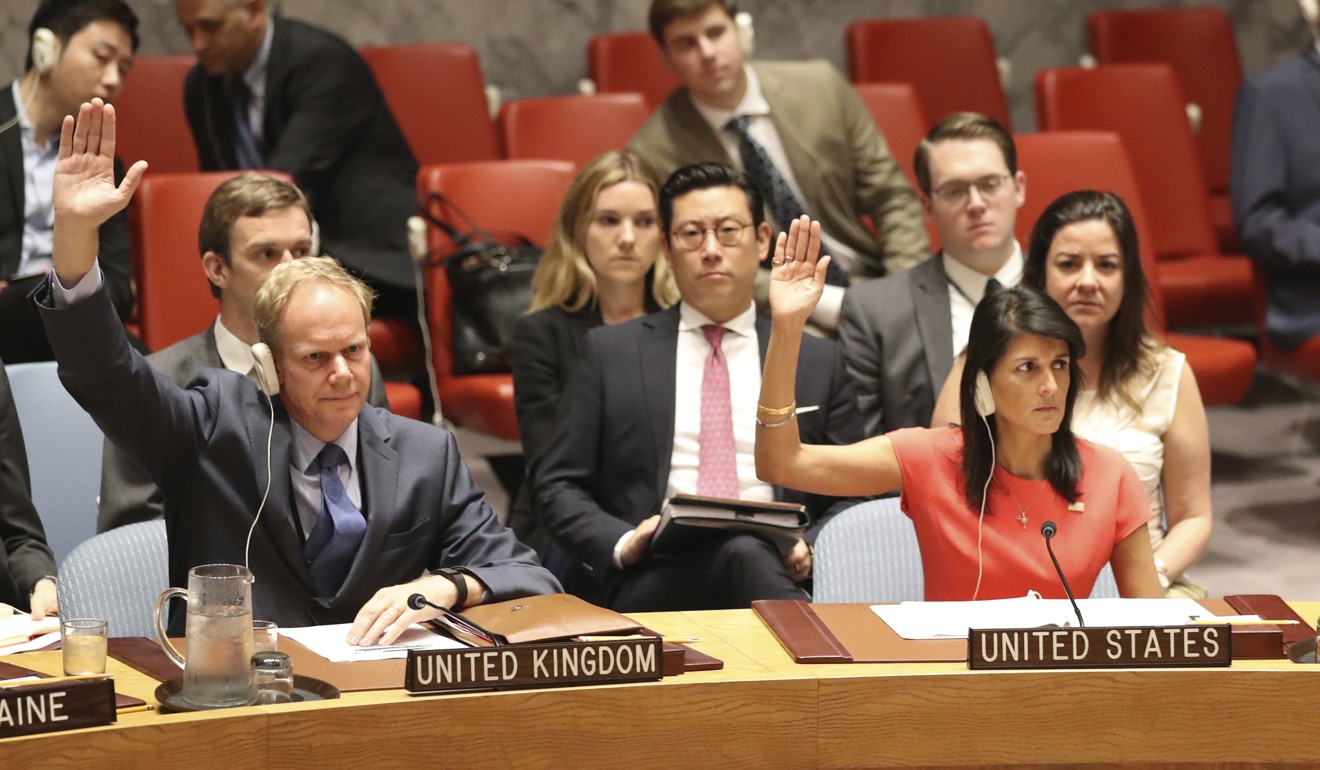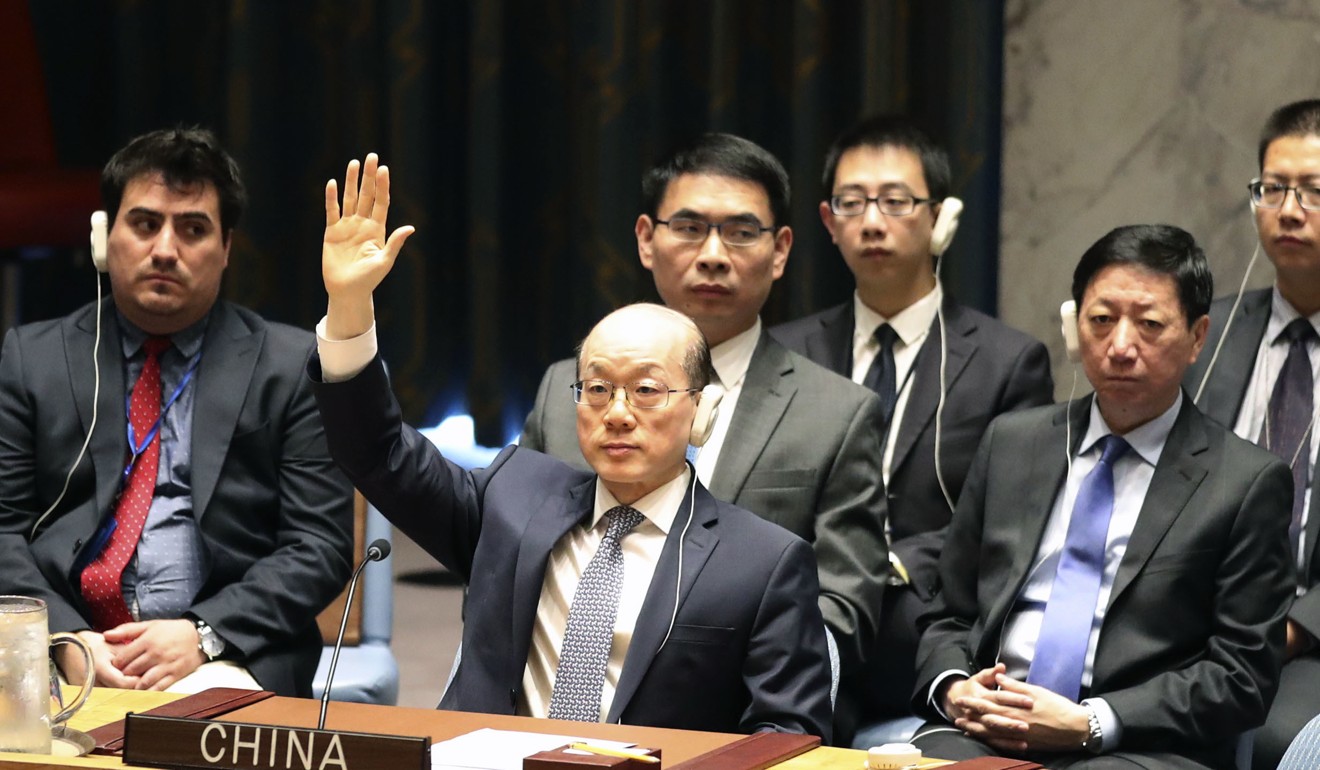
UN Security Council votes unanimously to impose new sanctions on North Korea
The United Nations Security Council unanimously passed a resolution to expand sanctions aimed at cutting North Korea’s ability to fund its nuclear weapons programme.
The new resolution prohibits UN member states from buying coal, iron ore, and other key commodities from North Korea, a move that’s meant to cut the country’s export revenue by US$1 billion annually, according to the Security Council members.
“The sanctions, if they are enforced, are very significant,” said Thomas Byrne, president of the New York-based The Korea Society and former senior vice president at Moody’s Investors Service. “They’re not self-sufficient in building nuclear bombs and ICBMs, so these sanctions are a big threat.”
North Korea is already running a $1 billion trade deficit, Byrne added. Doubling that would make it difficult for the country to keep financing its weapons programme.
The resolution’s passage follows several weeks marked by pledges of cooperation followed by recriminations between the US and China over the need for, and extent of, additional sanctions.
The latest ban on purchases of North Korean goods also includes lead and seafood.
A fact sheet distributed by US Ambassador to the UN Nikki Haley’s delegation called Resolution 2371 “the strongest sanctions ever imposed in response to a ballistic missile test”.
The body has issued seven resolutions against North Korea since 2006, after six-nation talks involving Pyongyang, China, the US, Japan, South Korea and Russia broke down.

“Today was a good day at the UN. We’ll need many more good days,” said Haley, who presented the new resolution to the Security Council. Commodities covered by the ban represent “a loss of one third of [North Korea’s] exports and hard currency”.
“China has always insisted on realising the denuclearisation of the Korean Peninsula, upholding peace and stability on the peninsula,” China’s UN Ambassador Liu Jieyi said. “The fact that the Council adopted this resolution unanimously demonstrates that the international community is united in its position regarding the nuclear issue of the peninsula.”

Still, contention within the Security Council remains, possibly pitting the US, South Korea, and Japan on one side against China and Russia on the other if the North Korea continues to test ICBMs.
China and Russia, usually the most resistant to US efforts to isolate North Korea economically and diplomatically, criticised Washington and Seoul for their deployment of a US Navy missile defence system in South Korea, even as they cast votes in support of the new resolution.
Liu and his Russian counterpart Vasily Nebenzya called for a dismantlement of the Terminal High Altitude Area Defence (THAAD) battery deployment and also called on the two allies to scrap “large-scale”, joint military exercises as part of a “suspension for suspension” solution.
Speaking to reporters after the Security Council voted, Haley said “the military exercises that the United States has done with South Korea have been going on for 40 years. They’ve been very transparent and they’ve been in the name of defending ourselves and our allies, and so we are standing by South Korea and we are standing by Japan.”
Haley reiterated that the US would be willing to engage in dialogue with North Korea after Pyongyang halts its nuclear and missile tests.
The latest resolution goes beyond a prohibition on exports by sanctioning North Korea’s state-owned Foreign Trade Bank (FTB), which is identified as the country’s primary foreign exchange bank.
The resolution also prohibits the formation of any new joint ventures between North Korea and other nations and bans additional investment in existing ones.
“If these [sanctions] are enforced over the long term, they could force the North Korean government to think hard about the economic and social costs – and the cost of their political cost considering their relations with China – of their continuing with this provocative nuclear and ICBM missile programme,” The Korea Society’s Byrne said.

